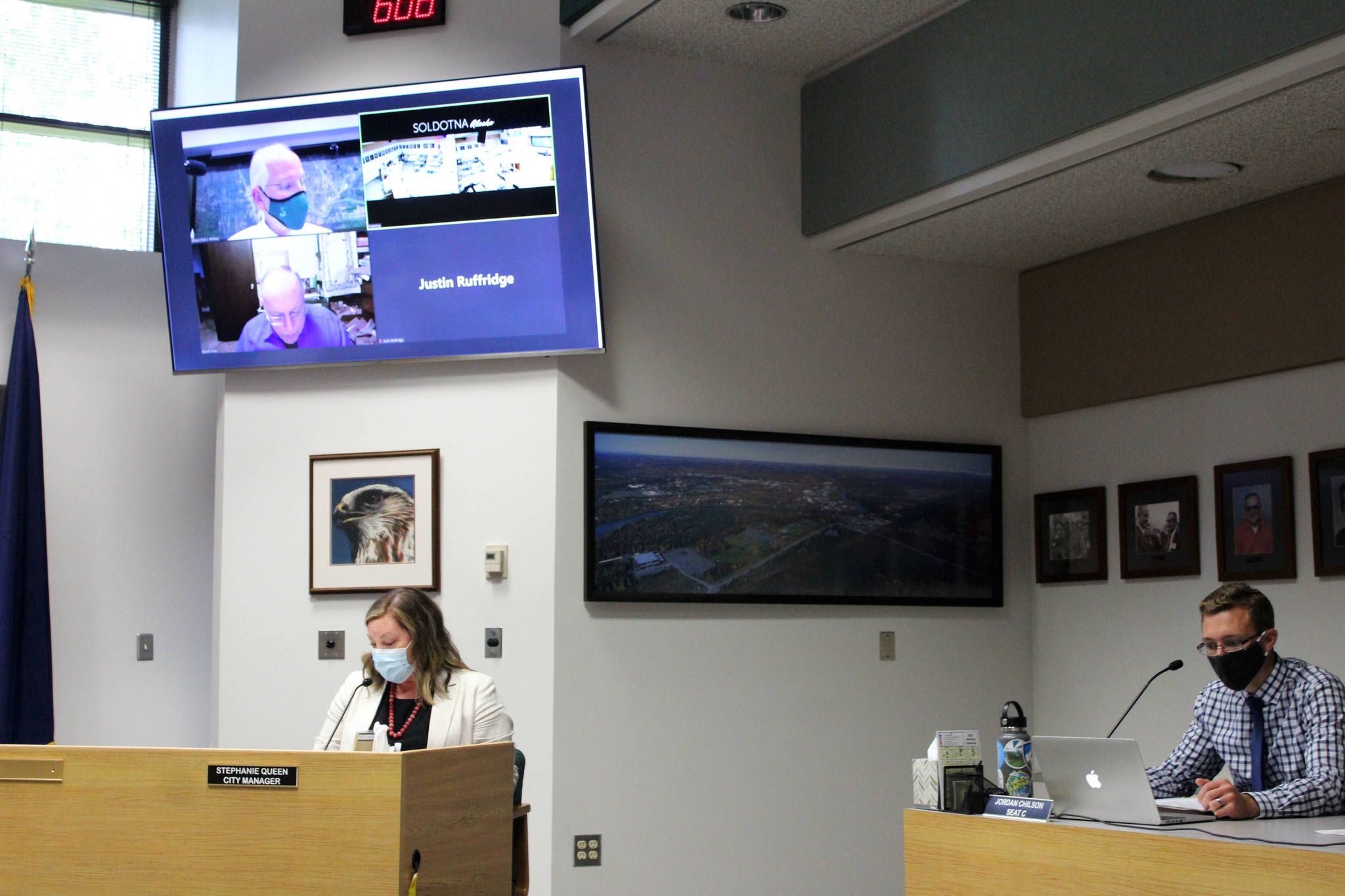Another round of federal COVID-19 relief funding has made its way to municipalities on the central Kenai Peninsula.
The American Rescue Plan Act, or ARPA, is a $1.9 trillion economic stimulus package signed into law by President Joe Biden in March that, among other things, includes $350 billion in funding for state and local governments in response to the COVID-19 pandemic.
ARPA funds are in addition to money states and municipalities received through the federal Coronavirus Aid, Relief and Economic Security Act, a $2.2 trillion economic stimulus bill that former President Donald Trump signed into law in March of last year.
ARPA funds can be used more broadly and are available for a longer period of time for municipalities, according to a handout from the U.S. Department of the Treasury.
“The Coronavirus State and Local Fiscal Recovery Funds provide a substantial infusion of resources to help turn the tide on the pandemic, address its economic fallout, and lay the foundation for a strong and equitable recovery,” that handout says.
The funds are meant to support COVID-19 response efforts, replace lost public sector revenue, support immediate economic stabilization and address systemic public health and economic challenges. That means funds could be used to cover everything from payroll for public health staff responding to the pandemic, to improvements to water and sewer infrastructure to grants for local businesses.
ARPA funds cannot be used to offset things that reduce net tax revenue or for “extraordinary” payments into pension funds, among other things.
“Municipalities (have) substantial discretion to use the funds in a manner best suited to the needs of the community, as long as such uses fit into the … categories,” wrote Soldotna Finance Director Melanie Imholte in an Aug. 3 memo to the Soldotna City Council.
The Soldotna City Council approved the appropriation of about $1.14 million, received through ARPA, during their Wednesday night meeting. That is the total amount the city will receive. With that approval came discussion about how the city would determine what to use those funds for. Council member Jordan Chilson said that the process by which Soldotna distributed CARES Act funds worked well. That process involved the City of Soldotna meeting with community stakeholders, which Chilson said maximized the community impact of those funds.
Soldotna City Manager Stephanie Queen said during the Soldotna City Council’s Wednesday night meeting that the city has not yet considered how they will prioritize ARPA funds.
“We’d be happy to accommodate input on that process as well as input on the level of urgency when the council feels is the right moment to really start that conversation,” Queen said Wednesday.
Similarly, Kenai City Manager Paul Ostrander said Thursday that the city has not yet determined how those funds will be used. The City of Kenai has already received its first tranche of funds, Kenai Finance Director Terry Eubank said Thursday.
Eubank said the City of Kenai is currently eligible for about $1.9 million, with $942,274.62 already received. The next tranche will not be received until next year. Eubank also said that the total funds the city is eligible for could change. If any other eligible non-entitlement unit, or NEU, in Alaska declines their funds, it is redistributed to other NEUs. The City of Soldotna is also considered an NEU.
The Kenai Peninsula Borough is eligible for about $11.4 million, the first half of which was received on May 25. The second deposit is scheduled for May 2022, according to a July 22 memo from Community and Fiscal Projects Manager Brenda Ahlberg.
Unlike Kenai and Soldotna, the borough has already outlined the projects it plans to use its ARPA funds for. They include $2 million in revenue replacement to be allocated to educational services, $3.4 million in lost revenue to be invested in infrastructure and $6 million for a project at the Central Peninsula Landfill.
That project is the repair of the leachate tank, as well as the expansion of existing leachate infrastructure. Leachate comes from water that percolates through landfills and may contain toxic chemicals that modern landfills are designed to prevent from contaminating groundwater or surface water, according to Cornell University’s Waste Management Institute. The borough’s tank collects, treats and delivers water and wastewater.
More information about ARPA’s Coronavirus State and Local Fiscal Recovery Funds can be found on the U.S. Department of the Treasury website at home.treaury.gov/policy-issues/coronavirus.
Reach reporter Ashlyn O’Hara at ashlyn.ohara@peninsulaclarion.com.

